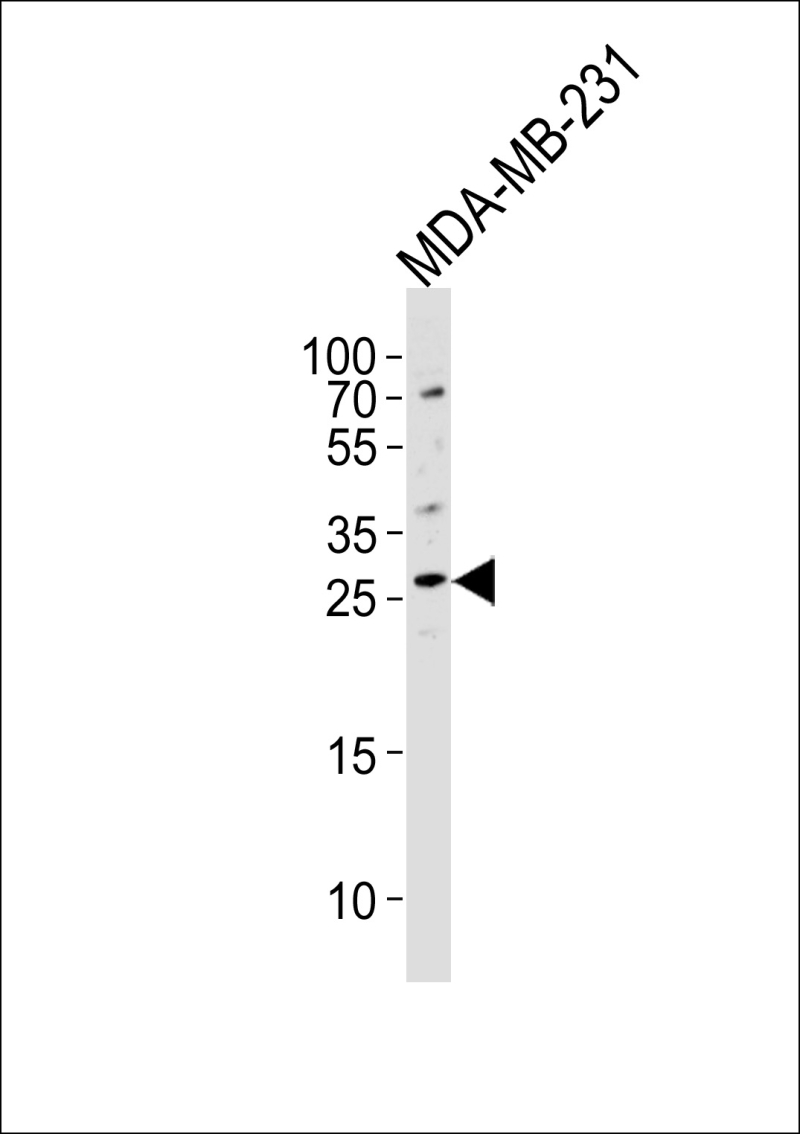
| WB | 1/1000 | Human,Mouse,Rat |
| IF | 咨询技术 | Human,Mouse,Rat |
| IHC | 咨询技术 | Human,Mouse,Rat |
| ICC | 技术咨询 | Human,Mouse,Rat |
| FCM | 咨询技术 | Human,Mouse,Rat |
| Elisa | 咨询技术 | Human,Mouse,Rat |
| Aliases | Cysteine-rich secretory protein 1, CRISP-1, AEG-like protein, ARP, Acidic epididymal glycoprotein homolog, CRISP1, AEGL1 |
| Entrez GeneID | 167 |
| WB Predicted band size | 28.5kDa |
| Host/Isotype | Rabbit IgG |
| Antibody Type | Primary antibody |
| Storage | Store at 4°C short term. Aliquot and store at -20°C long term. Avoid freeze/thaw cycles. |
| Species Reactivity | Human |
| Immunogen | This CRISP1 antibody is generated from rabbits immunized with a KLH conjugated synthetic peptide between 162-191 amino acids from the C-terminal region of human CRISP1. |
| Formulation | Purified antibody in PBS with 0.05% sodium azide. |
+ +
以下是3篇关于CRISP1抗体的参考文献摘要信息:
---
1. **标题**:*CRISP1 Antibodies Induce Infertility in Female Mice by Impeding Sperm-Egg Fusion*
**作者**:Cohen DJ, et al.
**摘要**:研究发现抗CRISP1抗体通过特异性结合精子表面的CRISP1蛋白,阻断精子与卵母细胞的融合过程,导致雌鼠受孕率显著下降,提示CRISP1可能作为免疫避孕靶点。
---
2. **标题**:*Autoantibodies Against CRISP1 in Infertile Men: Association with Semen Quality*
**作者**:Brugh VM, et al.
**摘要**:通过ELISA检测男性不育患者血清中抗CRISP1抗体水平,发现其与精子活力降低和形态异常显著相关,表明自身免疫反应可能通过靶向CRISP1干扰精子功能。
---
3. **标题**:*Localization and Functional Analysis of CRISP1 in Human Sperm Using Monoclonal Antibodies*
**作者**:Da Ros VG, et al.
**摘要**:利用CRISP1特异性单克隆抗体进行免疫荧光实验,证实CRISP1主要定位于精子顶体区域,并参与精子获能过程中的钙离子调节,为研究其分子机制提供工具。
---
4. **标题**:*CRISP1 as a Target for Immunocontraception: Epitope Mapping and Antibody Characterization*
**作者**:Nolan MA, et al.
**摘要**:通过表位定位技术筛选CRISP1的抗原决定簇,开发高亲和力抗体,动物实验显示其能有效抑制精子穿透卵子透明带,验证了基于CRISP1的免疫避孕策略可行性。
---
以上文献聚焦CRISP1抗体在生殖生物学、免疫避孕及男性不育中的研究应用。
CRISP1 (Cysteine-Rich Secretory Protein 1) is a member of the CRISP family, which is characterized by conserved cysteine-rich domains and a secretory protein structure. Primarily expressed in the male reproductive tract, CRISP1 is secreted by the epididymis and binds to sperm during maturation, playing a critical role in sperm-egg fusion and fertilization. It contains two functional domains: a PR-1 domain implicated in innate immunity and cell adhesion, and a cysteine-rich domain (CRD) involved in ion channel regulation. Dysregulation of CRISP1 has been linked to infertility, as antibodies targeting CRISP1 can disrupt sperm function, impairing motility or egg interaction.
CRISP1 antibodies are primarily studied in reproductive biology and autoimmune contexts. In research, they serve as tools to investigate CRISP1's molecular mechanisms in fertilization or its interaction with ion channels like TRPM8. Clinically, anti-CRISP1 antibodies are explored as biomarkers for immune-mediated infertility, as their presence in serum or seminal plasma correlates with reduced fertility in men. These antibodies are typically generated in animal models (e.g., rabbits, mice) using recombinant CRISP1 proteins or synthetic peptides. Both monoclonal and polyclonal variants are utilized, with applications ranging from Western blotting and immunohistochemistry to functional blocking assays. Recent studies also suggest CRISP1's potential roles in cancer and inflammation, expanding the relevance of its antibodies in broader biomedical research.
×